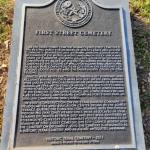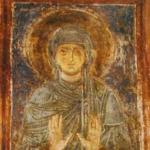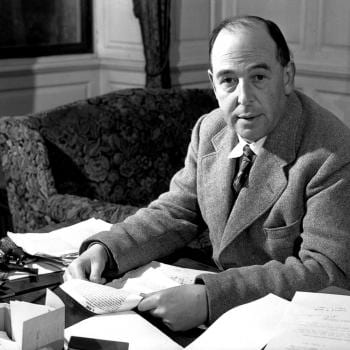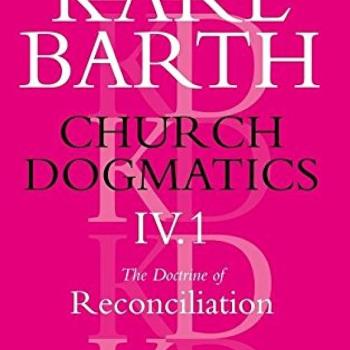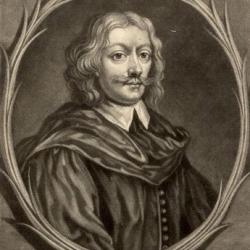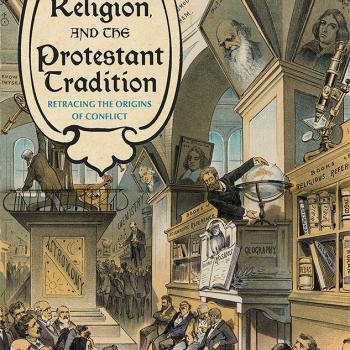I have been at work on a book project, Modern Christian Theology: An Intellectual History, for Princeton University Press for about six years now, and I have finally made it to the twentieth century!
Trying to capture the Barthian revolution in modern theology in about thirty pages (a summertime task) presents challenges, to say the least. But I’ve been immensely aided by reading Christiane Tietz’s biography Karl Barth: A Life in Conflict. First published in German in 2018, the work was translated by Victoria Barnett, an able scholar of modern German religion and theology, and brought out in English by Oxford University Press in 2021.
Writing a biography on Barth is not for the faint-hearted. The seminal theologian’s enormous literary production, the complexity of his personal life, and the intersection of his career with the Nazi disaster and other historical events requires immense reading, keen skills of analysis, the ability to condense, and lots of archival work. Happily, Tietz’s succeeds on almost all counts.
Tietz is obviously familiar with Barth’s multi-volume, unfinished Church Dogmatics and other works, but she does not try to simply summarize them in chronological order—a dreary task. Rather, she mines them selectively and connects their themes with moments in Barth’s own life and broader emphases in modern theology. She thus spends considerable time on his Epistle to the Roman (2nd edition), which famously marked Barth’s break with the liberal theology of the nineteenth century, and with key shorter texts, such as his seminal “The Word of God and the Task of Theology.” Only one chapter is exclusively devoted to the Church Dogmatics. Barth called this work on dogmatics his “White Whale” (after Moby Dick) and Tietz suitably does the same for her chapter title.
Tietz handles Barth’s complicated personal life with aplomb. As became widely known a while back, in addition to his marriage to Nelly Hoffmann, Barth maintained both a professional and love relationship with Charlotte von Kirschbaum, his research assistant, theological conversation partner, and much else. Somehow (exactly how I do not know), Nelly, Charlotte, and Barth managed to live under one roof together—with four kids (all Nelly’s). Tietz calls this “a troubled ‘ménage à trois’ and devotes a chapter to it. Barth does not come off well, but Tietz generally allows Barth’s many questionable rationalizations for the relationship to speak for themselves. Barth often referred to the situation as a Notgemeinschaft, a crisis community. Still, Tietz is also willing to bring the hammer down on Barth with a quote from his mother (who knew about the arrangement). “What good is the most discerning theology when it suffers shipwreck in your own home,” as she once scolded her son.
Barth’s involvement with the “Confessing Church” during the Nazi period makes for exciting reading. As is well known, Barth was the main drafter of the “Barmen Declaration,” a manifesto condemning “German Christians,” the infamous group of German Protestants who thought they could somehow reconcile Christianity and Nazi ideology. Tietz covers this episode, but she also offers many other tidbits generally not that well known, such as the fact that Barth quixotically decided to write a letter to Hitler on July 1, 1933, shortly after he came to power, telling him simply that “Protestant theology must go its own way, even in the new Germany, unrelenting and troubled. I request your understanding for this necessity.” Whether Hitler responded to Barth is not known, as Tietz concludes with wry understatement.
Finally, Tietz draws from an enormous range of sources, including Eberhard Busch’s Karl Barth: His Life from Letters and Autobiographical Texts, a foundational text for Barth studies. But it was her deep dive into the Karl Barth-Archive in Basel (where Barth was both born and finished his career) that especially impressed me. Pictures, personal letters, academic memoranda and various official communiques do not detract as mere elements of adornment but add substantially to the biography.
Obviously, I am quite smitten with this book and can heartily commend it. I’ll even go so far as to say it’s a must-read for those interested in twentieth-century Protestant theology. Not least, its already proven immensely helpful for the writing of my own “White Whale” …


